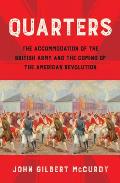“Another Mob to search for Ebenezer Richardson”
For the next several weeks the biggest American ports were focused on the East India Company tea.
Richardson’s employers and protectors, the Customs Commissioners, took shelter at Castle William in Boston harbor, and probably others in the department were also lying low.
On 25 Jan 1774, a Boston mob attacked another Customs officer, John Malcom. He had threatened a boy and then clubbed the small shoemaker George Robert Twelves Hewes.
When local authorities tried to convince the crowd to release Malcom, men answered “that in case they let him go they might expect a like satisfaction as they had received in the cases of Richardson and the soldiers, and the other friends of government.” People resented Richardson’s royal pardon and didn’t want a repeat, just as they didn’t like the acquittals after the Boston Massacre.
The attack on John Malcom continued and became one of the most vicious and infamous of the pre-war years.
Two days later, someone reported seeing Richardson himself in Boston. Richard Draper’s 28 January Boston News-Letter said:
It having been reported that the noted Ebenezer Richardson, was seen in Town, a Number of People were in Pursuit of him last Evening, but could not find him.That same day, Gov. Thomas Hutchinson wrote to the Secretary of State, Lord Dartmouth, about the attack on Malcom and added:
there was an Attempt made to raise another Mob to search for Ebenezer Richardson, lately found guilty for Murder, but Judgment being suspended, His Majesty’s Pardon was applied for & obtained. He is now in some very inferior Employment in the Service of the Customs in Pensilvania, and it is thought a Report of his being in Town was spread for the sake of raising a Mob. Some of the more considerate People appeared & opposed the Leaders in the beginning of the Affair and put a Stop to it.Hutchinson obviously believed Richardson was still in Philadelphia.
Richardson’s own statement to Dartmouth in January 1775 was skimpy on dates and other specifics about his movements:
after your petitioner was dischargd the Commissioners of the Customs Perocured for your Petitioner a place in Pennaslavania but the peopel of boston sent after and [???] the mob in Pennaslavania so that your petitioner could not shew his head there.At some point in late 1773 or early 1774, Ebenezer Richardson did make his way back to Massachusetts.
TOMORROW: Meeting with the governor.



















